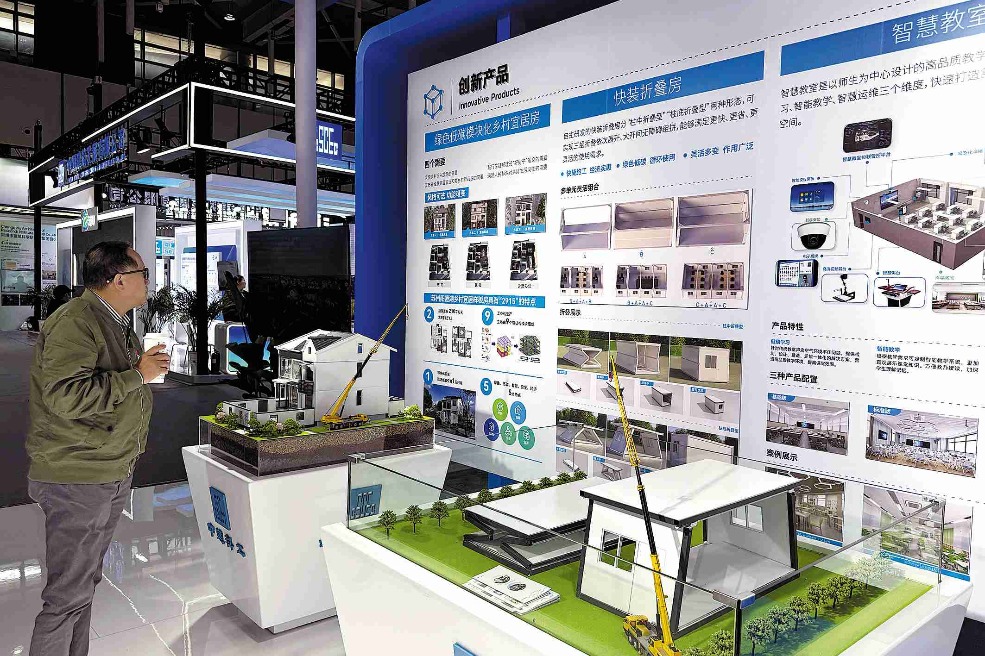Huawei founder remains optimistic despite US curbs

The United States' restrictive policies against China are ironically catalyzing China's technological advancements, industry insiders said on Tuesday, referring to the chip breakthroughs achieved by Huawei Technologies and the recent remarks of its founder Ren Zhengfei, who downplayed the impact of US export controls.
In an interview with People's Daily that was published on Tuesday on the front page of the newspaper, Ren said that Huawei has no need to worry about chip challenges. In the face of external blockades and suppression, "there is no need to think too much about difficulties; just take action and move forward step by step", he said.
Ren outlined his company's pragmatic strategy for overcoming US technology restrictions, emphasizing investment in and relentless execution of theoretical research.
Addressing Washington's warnings about using Huawei's Ascend AI chips, he said: "Many Chinese chip firms perform well. Huawei is just one of them. The US overstates our achievements — we're still one generation behind in single-chip performance."
Ren made the remarks after Jensen Huang, CEO of US semiconductor company Nvidia, told Bloomberg in a recent interview that Huawei's AI chip technology, including the CloudMatrix cluster and Ascend 910C chip, now competes with Nvidia's high-end offerings such as Grace Blackwell and H200.
Xiang Ligang, director-general of the Zhongguancun Modern Information Consumer Application Industry Technology Alliance, a telecom industry association, said that Huawei's achievements have demonstrated how the US restrictions are accelerating China's progress in chip technology.
"China's semiconductor industry, tempered by years of US sanctions, now boasts stronger prowess," Xiang said.
According to Huawei's founder Ren, the software-related challenges that China faces are manageable. "Software is built on mathematical symbols, codes and layers of cutting-edge algorithms. There are no shackles here," he said.
"The real challenge lies in our education system and talent development. In the future, China will have hundreds, or even thousands, of operating systems supporting its progress across industry, agriculture, healthcare and beyond," he added.
Ren underscored the importance of theoretical research. "Without fundamental research, we lack roots. Even if the leaves appear lush and thriving, a single gust of wind can make them fall," he said.
Buying foreign products is expensive, precisely because their prices incorporate investments in foundational research, Ren said. "Therefore, whether China pursues fundamental research or not, we will pay the price either way. Why don't we pay our own researchers instead?"
Huawei is backing its vision with action. Of the company's 180 billion yuan ($25 billion) annual expenditure on research and development, 60 billion yuan is allocated for theoretical research. "Without theoretical research, there will be no major breakthroughs and we will not catch up with the US," Ren said.
On the broader development of artificial intelligence, he predicted a century-long evolution, noting that China has a lot of advantages, including hundreds of millions of young people, robust power grids, and the most advanced communication networks.
US economist Richard Wolff once said that the primary reason that the US lacks a high-speed rail system as advanced as China's is its capitalist path, where every endeavor must turn a profit.
In contrast, China's socialist market economy is enabling the development of infrastructure nationwide, Ren said.
"Why is it that only socialism undertakes endeavors that aren't profitable? One of its purposes is to advance society. ... Looking at infrastructure development — whether it is high-speed rail, expressways, or dams — we know we have only pursued the path of a socialist market economy. Otherwise, none of these projects would have been built," he said.




































